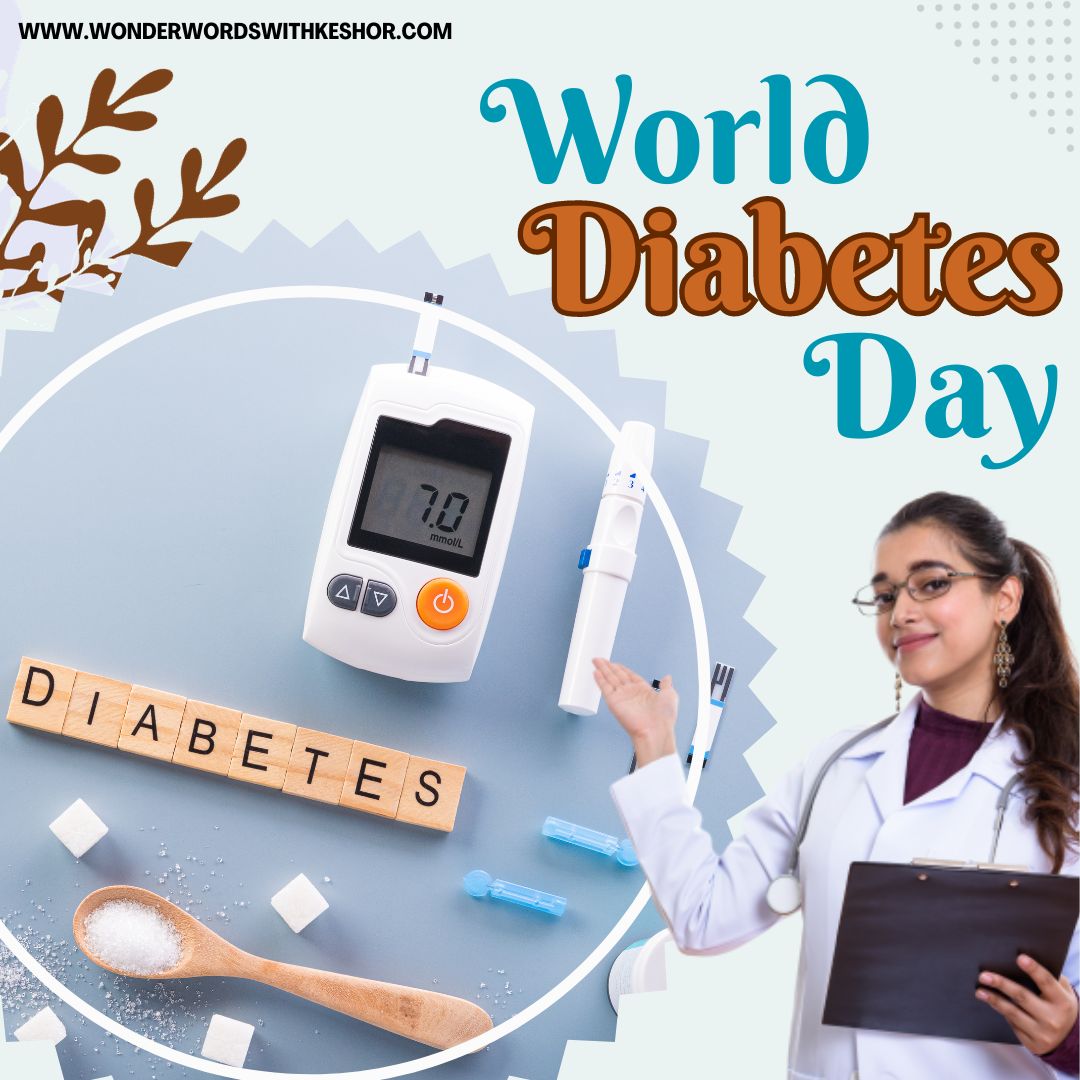World Diabetes Day, a significant event observed globally, serves as a crucial platform to raise awareness about diabetes, its impact, and the measures needed for prevention and management. In this comprehensive article, we delve into various aspects related to World Diabetes Day, from its origins and campaigns to innovations in diabetes management, personal stories, and the challenges faced in diabetes care.
Table of Contents
I. Introduction
A. Definition of World Diabetes Day
World Diabetes Day is a global observance aimed at promoting diabetes awareness and advocating for better care. It provides an opportunity to unite individuals, communities, and organizations worldwide in the fight against diabetes.
B. Significance and Purpose
Understanding the significance of this day involves recognizing the growing prevalence of diabetes globally and its implications on public health. The purpose is not only to educate but also to inspire action for diabetes prevention and care.
C. History and Origin
World Diabetes Day traces its roots back to the year 1991 when it was introduced by the International Diabetes Federation (IDF) and the World Health Organization (WHO). The date, November 14th, was chosen to commemorate the birthday of Sir Frederick Banting, one of the individuals credited with the discovery of insulin.
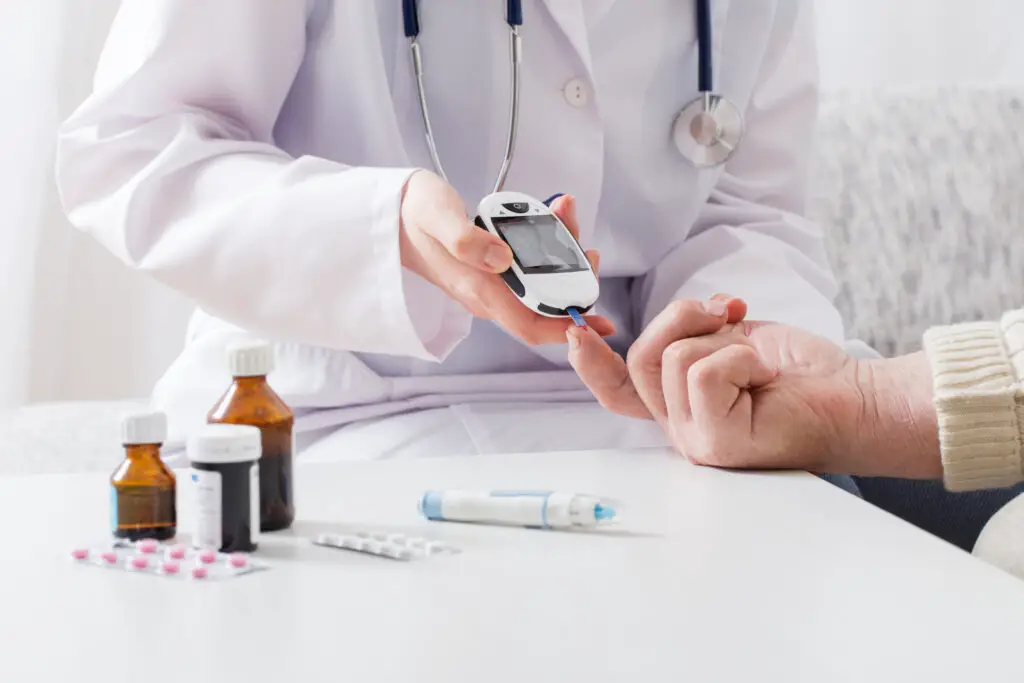
II. Understanding Diabetes
A. Brief Overview of Diabetes
Diabetes is a long-term health condition identified by higher-than-normal levels of sugar in the bloodstream. Understanding the basics of diabetes is essential to grasp the challenges faced by individuals living with the condition.
B. Types of Diabetes
1. Type 1 Diabetes
An autoimmune condition where the body’s immune system attacks and destroys insulin-producing cells, leading to insulin deficiency.
2. Type 2 Diabetes
When there’s insulin resistance, the body’s cells don’t respond well to insulin, leading to higher levels of sugar in the blood.
3. Gestational Diabetes
Develops during pregnancy and increases the risk of both the mother and child developing type 2 diabetes in the future.
C. Global Diabetes Statistics
Examining the prevalence and impact of diabetes on a global scale provides insights into the magnitude of the issue. Current statistics reveal a rising trend, emphasizing the urgency of effective diabetes management.
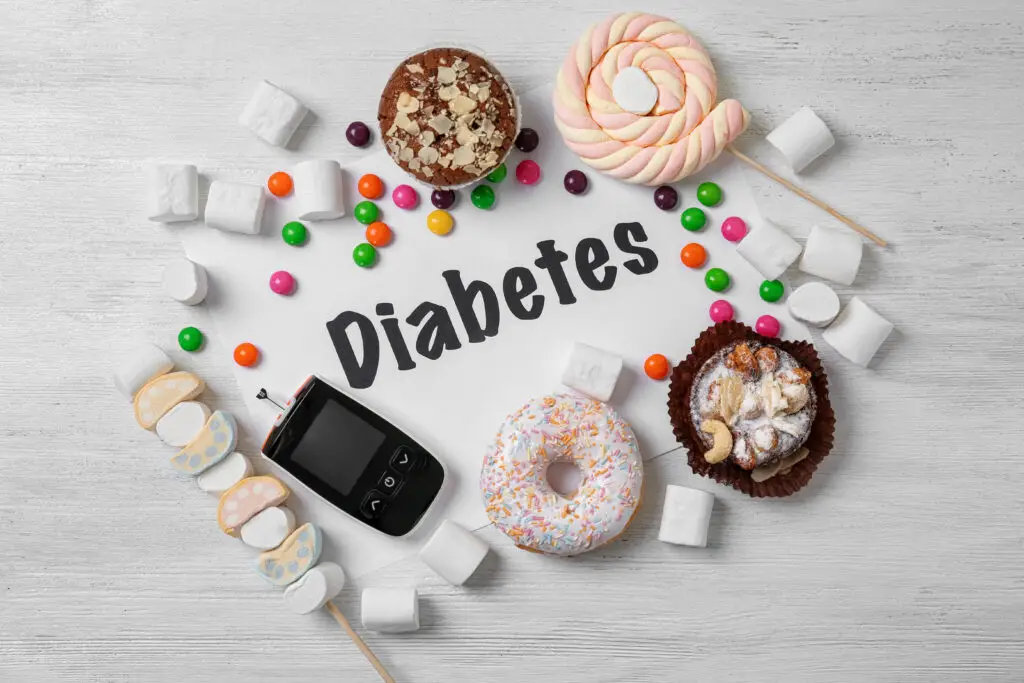
III. World Diabetes Day Campaigns
A. Initiatives and Events
World Diabetes Day is marked by a myriad of initiatives, including awareness campaigns, educational events, and community outreach programs.
B. Theme Selection Process
Each year, a specific theme is chosen to focus attention on key aspects of diabetes. Understanding the process behind theme selection sheds light on the current priorities in diabetes advocacy.
C. Impact of Campaigns on Diabetes Awareness
Analyzing the effectiveness of campaigns in raising awareness and promoting behavioral change is crucial for evaluating the overall impact of World Diabetes Day.
IV. Diabetes and Public Health
A. Economic Burden of Diabetes
The economic impact of diabetes extends beyond individual healthcare costs, encompassing productivity losses and increased demands on healthcare systems.
B. Diabetes-related Complications
Complications such as cardiovascular diseases, kidney failure, and vision impairment underscore the need for comprehensive diabetes management.
C. Role of Prevention and Early Detection
Highlighting the importance of preventive measures and early detection in reducing the burden of diabetes on individuals and healthcare systems.
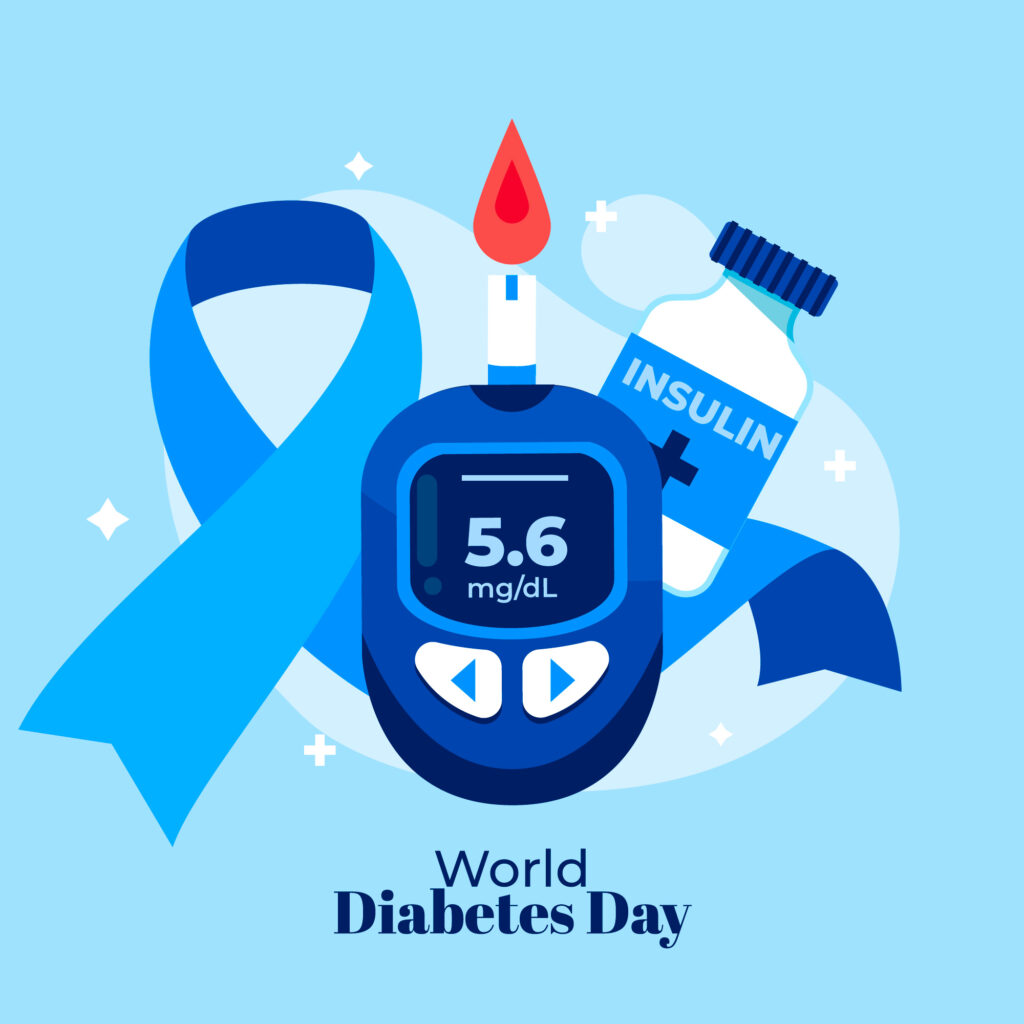
V. Innovation in Diabetes Management
A. Technological Advancements
1. Continuous Glucose Monitoring
Technological innovations like continuous glucose monitoring offer real-time insights into blood sugar levels, enhancing diabetes management.
2. Artificial Pancreas
The development of artificial pancreas systems represents a groundbreaking approach to automated insulin delivery, providing better control over blood sugar levels.
B. Pharmaceutical Developments
1. Insulin Analogues
Advancements in insulin analogues aim to improve the effectiveness and convenience of insulin therapy for individuals with diabetes.
2. Oral Medications
Exploring oral medications as an alternative or complementary approach to traditional insulin injections.
VI. Lifestyle and Diabetes
A. Importance of Healthy Living
Adopting a healthy lifestyle, including proper nutrition and regular exercise, is integral to diabetes management and prevention.
B. Dietary Choices and Diabetes
Examining the role of dietary choices, including the impact of different diets on blood sugar control.
C. Exercise and Diabetes Management
Understanding the benefits of physical activity in managing diabetes and reducing the risk of complications.
VII. Personal Stories and Perspectives
A. Patient Narratives
Sharing personal experiences of individuals living with diabetes provides valuable insights into the daily challenges and triumphs.
B. Healthcare Professionals’ Insights
Gaining perspectives from healthcare professionals on the front lines of diabetes care enhances our understanding of the complexities involved.
C. Family and Community Support
Exploring the role of family and community support in helping individuals with diabetes navigate their journey.
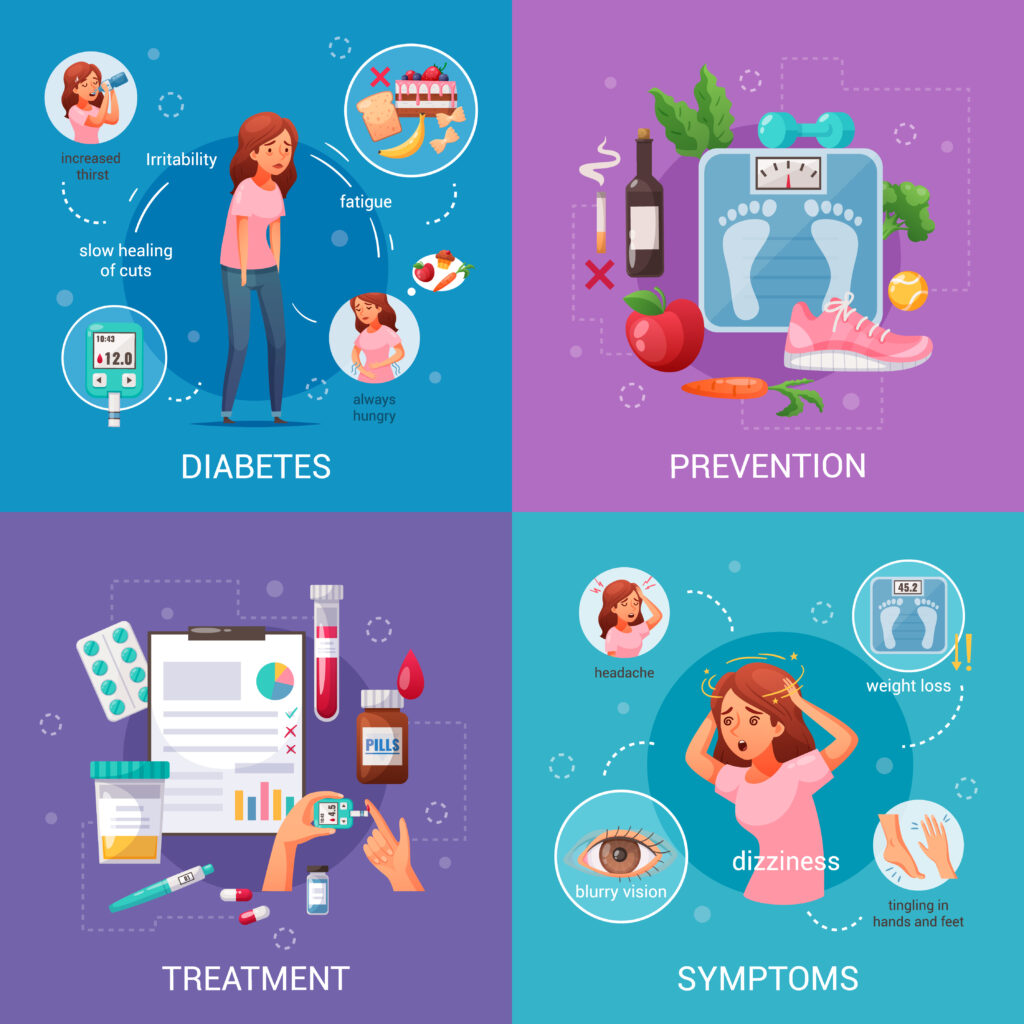
VIII. Global Collaborations in Diabetes Research
A. International Organizations
Examining the collaborative efforts of international organizations in funding and conducting diabetes research.
B. Research Institutions
Highlighting the contributions of research institutions in advancing our understanding of diabetes and developing new treatment approaches.
C. Cross-Country Studies
The importance of cross-country studies in identifying regional variations in diabetes prevalence and developing targeted interventions.
IX. Advocacy for Diabetes Care
A. Governmental Support
Examining the role of governments in developing policies and allocating resources to support diabetes prevention and care.
B. Non-Governmental Organizations
The contributions of non-governmental organizations in advocacy, awareness, and providing support to individuals with diabetes.
C. Grassroots Movements
Exploring grassroots movements and community-based initiatives that play a crucial role in addressing diabetes at the local level.
X. Challenges in Diabetes Management
A. Access to Medications and Technologies
Addressing disparities in access to essential medications and technologies for diabetes management.
B. Stigma Surrounding Diabetes
The pervasive stigma associated with diabetes and its impact on individuals’ mental health and well-being.
C. Disparities in Diabetes Care
Examining disparities in healthcare delivery and outcomes among different populations, including ethnic and socio-economic groups.
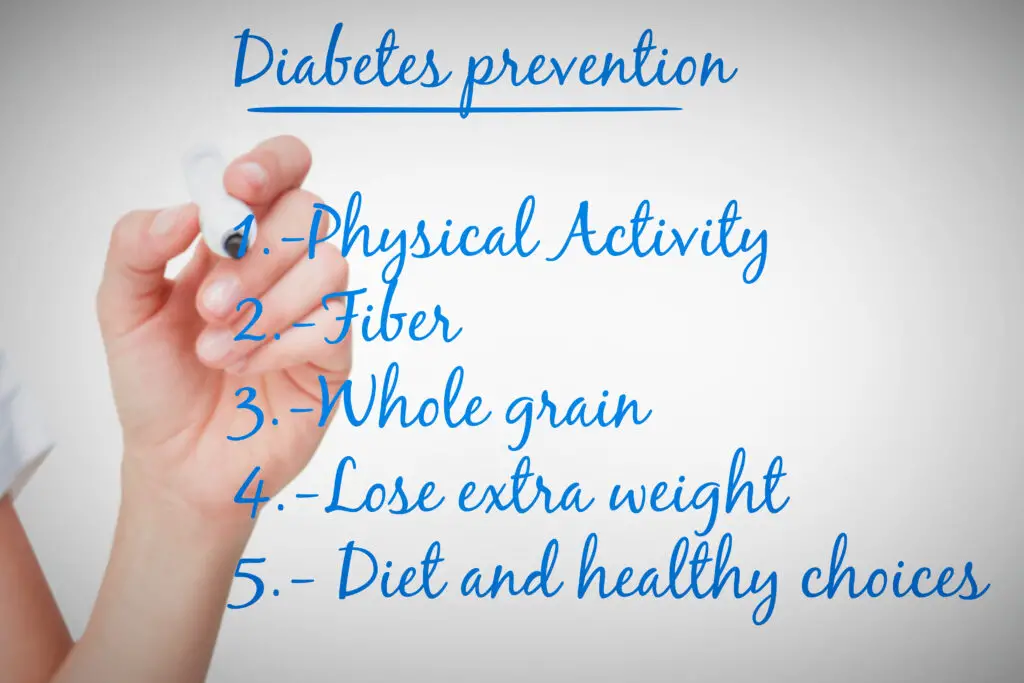
XI. Future Trends in Diabetes Care
A. Personalized Medicine
The potential of personalized medicine in tailoring diabetes treatment plans based on individual genetic and lifestyle factors.
B. Gene Therapy and Diabetes
Exploring the emerging field of gene therapy and its implications for diabetes treatment and prevention.
C. Community-based Interventions
The role of community-based interventions in promoting diabetes prevention and management at the grassroots level.
XII. Social Media and Diabetes Awareness
A. Impact of Social Media Campaigns
Analyzing the effectiveness of social media in reaching a wider audience and disseminating diabetes-related information.
B. Hashtags and Trends
Exploring the use of hashtags and trends in social media to amplify the reach and impact of diabetes awareness campaigns.
C. Influencers in Diabetes Advocacy
The role of influencers in leveraging their platforms to advocate for diabetes awareness and education.
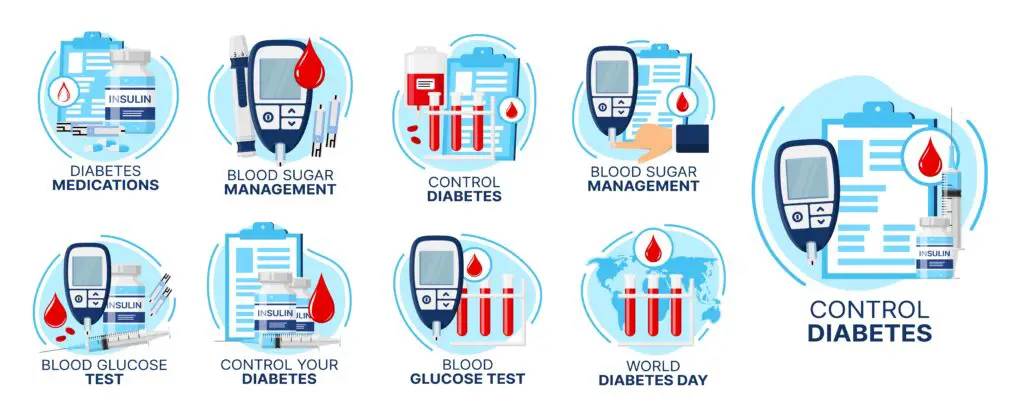
XIII. Educational Programs and Resources
A. School-based Diabetes Education
The importance of integrating diabetes education into school curricula to promote awareness from an early age.
B. Online Resources for Patients
The availability of online resources for patients, including educational materials, support groups, and telehealth services.
C. Healthcare Professional Training
The need for comprehensive training programs for healthcare professionals to enhance their ability to provide quality diabetes care.
XIV. Celebrating World Diabetes Day Locally
A. Community Events
Highlighting the impact of community events in fostering a sense of unity and shared responsibility in the fight against diabetes.
B. School Programs
Examining the role of schools in organizing programs to educate students and promote a healthy lifestyle.
C. Workplace Initiatives
The significance of workplace initiatives in raising awareness and supporting employees in managing diabetes.
XV. Reflection on Past World Diabetes Days
A. Notable Achievements
Celebrating the successes and milestones achieved in previous World Diabetes Day campaigns.
B. Challenges Overcome
Reflecting on challenges faced and overcome, providing insights into the resilience of the diabetes community.
C. Lessons Learned
Drawing lessons from past experiences to inform future strategies for diabetes advocacy and awareness.

XVI. The Role of Technology in Diabetes Education
A. Apps for Diabetes Management
Reviewing the diverse range of mobile applications designed to assist individuals in managing their diabetes effectively.
B. Virtual Support Communities
The importance of virtual support communities in connecting individuals with diabetes and fostering a sense of community.
C. Telemedicine in Diabetes Care
Exploring the role of telemedicine in improving access to healthcare services for individuals with diabetes.
XVII. Government Policies and Diabetes
A. Legislative Efforts
Examining legislative efforts aimed at addressing diabetes-related issues, including healthcare coverage and discrimination.
B. Healthcare Reforms
The impact of broader healthcare reforms on diabetes care, including efforts to improve accessibility and affordability.
C. Insurance Coverage for Diabetes Care
Analyzing the role of insurance coverage in ensuring that individuals with diabetes have access to necessary medications and treatments.
XVIII. Diabetes and Mental Health
A. Psychological Impact of Diabetes
Exploring the psychological challenges faced by individuals with diabetes, including stress, anxiety, and depression.
B. Coping Mechanisms
Highlighting effective coping mechanisms and mental health support for those navigating the emotional aspects of living with diabetes.
C. Support Systems
The importance of building strong support systems, including family, friends, and mental health professionals, in managing diabetes-related stress.

XIX. Global Diabetes Day in the Future
A. Vision for the Next Decade
Envisioning the future of World Diabetes Day and its role in shaping a world with reduced diabetes prevalence and improved care.
B. Goals for Diabetes Advocacy
Setting ambitious yet achievable goals for ongoing diabetes advocacy efforts on a global scale.
C. Anticipated Developments in Diabetes Care
Exploring potential breakthroughs and advancements in diabetes care that could shape the landscape of treatment in the coming years.
XX. Conclusion:
Over the past four decades, the prevalence of diabetes has undergone a staggering transformation, witnessing an almost fourfold increase from 1980 to 2023. This alarming surge highlights the growing global health challenge posed by diabetes. Factors such as changes in lifestyle, dietary habits, and a sedentary way of life have contributed to this significant rise. The implications of this trend extend beyond individual health, affecting healthcare systems, economies, and public well-being. Addressing this surge demands concerted efforts in public awareness, preventive measures, and advancements in diabetes management to ensure a healthier future for individuals and communities worldwide.
A. Recap of Key Points
Summarizing the key insights gained throughout the article, emphasizing the multifaceted nature of diabetes and the importance of a holistic approach to care.
B. Call to Action
Issuing a call to action for individuals, communities, and organizations to actively participate in diabetes advocacy and contribute to positive change.
C. Encouragement for Ongoing Diabetes Awareness
Encouraging continuous efforts in raising awareness, fostering innovation, and supporting individuals with diabetes in their journey toward optimal health.

Frequently Asked Questions (FAQs):
Q1: What is World Diabetes Day?
A: World Diabetes Day is a global observance dedicated to raising awareness about diabetes, its impact on individuals and communities, and advocating for better care and prevention.
Q2: When is World Diabetes Day celebrated?
A: World Diabetes Day is celebrated annually on November 14th. This date was chosen to honor the birthday of Sir Frederick Banting, one of the key figures in the discovery of insulin.
Q3: Why is World Diabetes Day significant?
A: World Diabetes Day holds significance as it provides a worldwide platform to unite people in the fight against diabetes. It aims to educate, inspire action, and address the growing global prevalence of diabetes.
Q4: What are the different types of diabetes?
A: Diabetes is categorized into three main types: Type 1, Type 2, and Gestational Diabetes. Each type has distinct characteristics and requires different approaches to management.
Q5: How does World Diabetes Day contribute to diabetes awareness?
A: World Diabetes Day contributes to awareness through various initiatives, events, and campaigns. It serves as a catalyst for global conversations about diabetes prevention, management, and the importance of early detection.
Q6: What is the theme selection process for World Diabetes Day?
A: The theme for World Diabetes Day is selected annually, focusing on specific aspects of diabetes awareness and care. The process involves careful consideration of current priorities and challenges in the field of diabetes advocacy.
Q7: How can individuals get involved in World Diabetes Day?
A: Individuals can get involved by participating in local events, spreading awareness on social media, and supporting diabetes-related initiatives. It’s an opportunity to contribute to a global movement for positive change.
Q8: What is the economic burden of diabetes?
A: The economic burden of diabetes includes not only individual healthcare costs but also productivity losses and increased demands on healthcare systems due to the widespread prevalence of the condition.
Q9: How can technology contribute to diabetes management?
A: Technology plays a significant role in diabetes management through innovations such as continuous glucose monitoring and artificial pancreas systems. These advancements provide real-time data and improve control over blood sugar levels.
Q10: What are the future trends in diabetes care?
A: Future trends in diabetes care include personalized medicine, gene therapy, and community-based interventions. These approaches aim to tailor treatments to individual needs and address diabetes on a broader scale.
Q11: How does World Diabetes Day address mental health?
A: World Diabetes Day recognizes the psychological impact of diabetes and addresses mental health challenges. It emphasizes coping mechanisms, support systems, and the importance of holistic care for individuals with diabetes.
Q12: How can individuals support diabetes advocacy in their communities?
A: Individuals can support diabetes advocacy by participating in local events, educating others, and promoting a healthy lifestyle. Grassroots movements and community initiatives play a crucial role in creating awareness and fostering positive change.
Q13: Where can I find resources for diabetes education?
A: Resources for diabetes education are available in various forms, including school-based programs, online materials, and healthcare professional training. These resources contribute to a better understanding of diabetes and its management.
Q14: What is the role of social media in diabetes awareness?
A: Social media plays a vital role in diabetes awareness through impactful campaigns, hashtags, and the involvement of influencers. It helps reach a broader audience and facilitates the dissemination of important information.
Q15: How can I celebrate World Diabetes Day locally?
A: Local celebrations can include participating in community events, supporting school programs, and encouraging workplace initiatives. These activities contribute to a sense of unity and shared responsibility in the local fight against diabetes.
https://www.youtube.com/watch?v=-AyGxt5SQ94
These FAQs provide insights into the various aspects of World Diabetes Day, from its significance and global impact to practical ways individuals can contribute to diabetes awareness and care.
